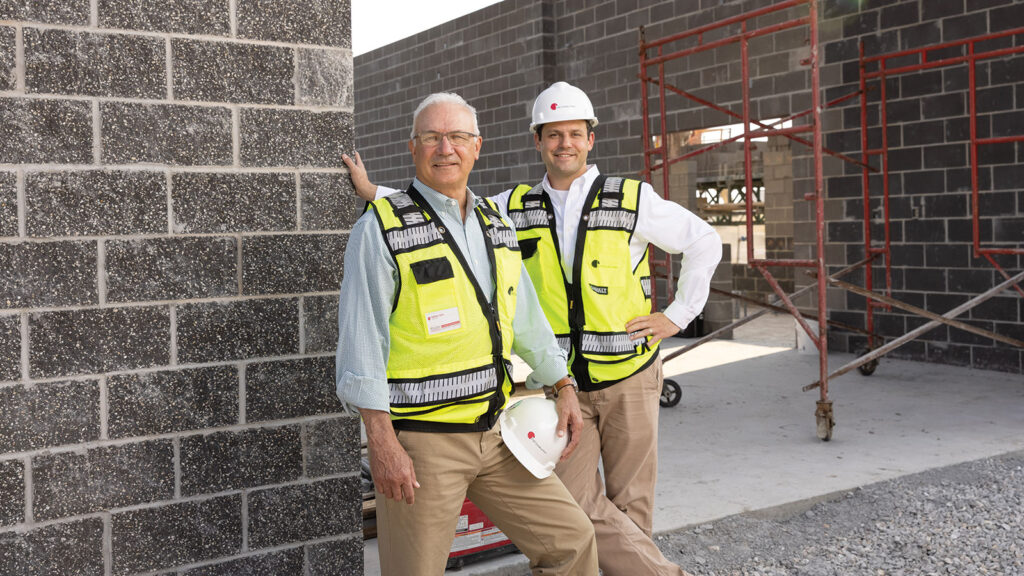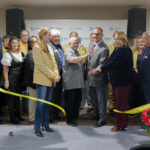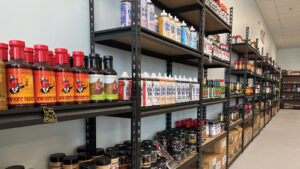Coil Construction may not be so small these days. But its humble beginnings may inspire businesses that are.
You may think a story about Coil Construction appearing in an issue focused on small business is like referring to Target as a mom-and-pop store. It’s true that while the company manages multimillion dollar projects, it’s still a local business with about 50 employees that started with a dream, a pickup truck and a $500 loan.
What might make you think of Coil Construction as a big business could have more to do with the big, highly visible structures it has left across Columbia. Those structures range from buildings housing Boone Health, Shelter Insurance, and Veterans United, to those for Scooter’s Coffee, Central Pantry, Woof’s Play and Stay, and Club Car Wash.
There’s no doubt that the Columbia-grown, family-based business has left an indelible mark on the city. But that mark didn’t happen overnight. Randy Coil has never forgotten where his small company began, and he’s enthusiastic about where it could go.
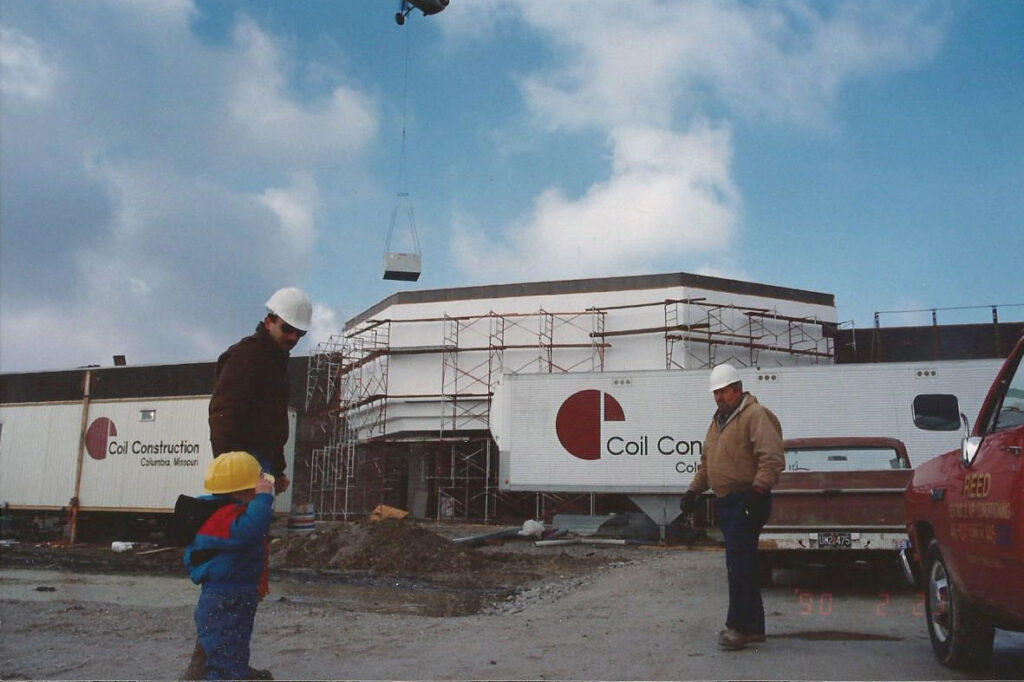
A Hammer and an Opportunity
Randy was raised in a family that built and repaired most of what it needed. As he learned to confidently use his own hands for building and repairing — taught by his grandfathers and father — Randy also discovered the satisfaction of that creative process. Earning a degree at Mizzou also prepared him for success.
In the spring of 1975, he saw an opportunity — a gap — in small, commercial projects that weren’t drawing much attention from builders. The projects were too small for major commercial contractors and too commercial for residential contractors. Like the stories of most upstart companies, his vision was to build a small enterprise by filling that unmet need.
With a pickup truck and a $500 loan to buy more tools and a toolbox for the truck, Randy launched the company. He had a partner for a few months and hired a couple of employees, letting others help lead his ambitious startup.
“The key to moving forward was hiring really great people — people who knew more about certain areas than I knew,” he says. “When we were hired to frame apartments, I hired one of the best carpenters that I could find to lead us.”
Randy says that philosophy continues to hold true at Coil Construction today.
“There’s a lot of people in our office today who have a lot more experience and expertise in certain areas than I do,” he explains. “They have engineering degrees, for example, and can do some things that I can’t do. At the level where we’re at now, it takes a lot of collaboration with a lot of experience.”
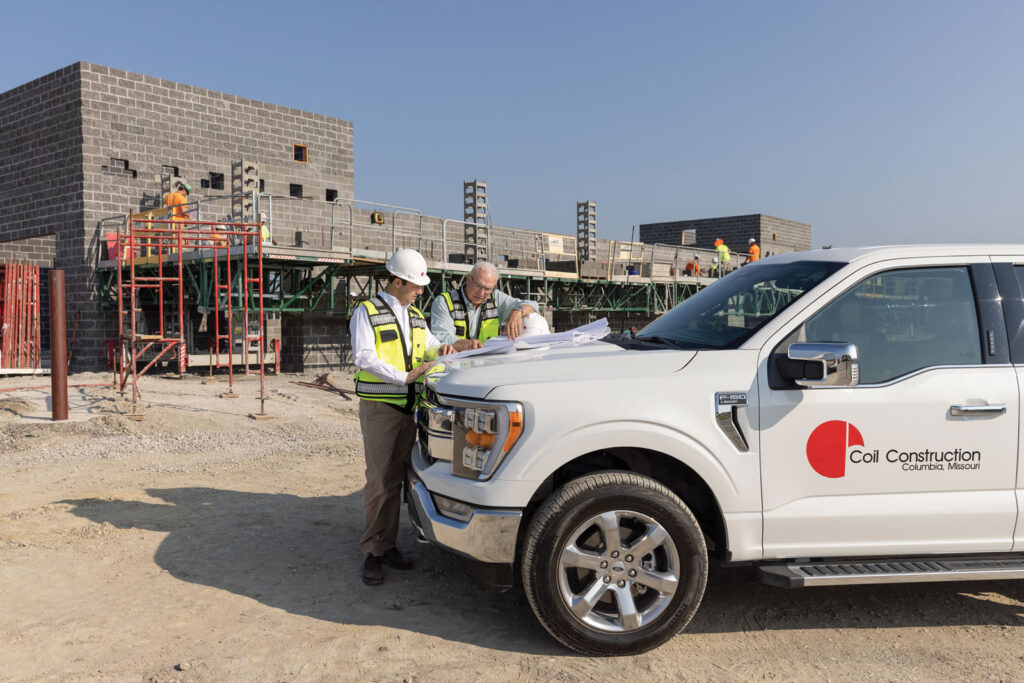
The First Watershed Moment
“In every business, there are certain watershed moments,” Randy says. “You’ve got to get to a certain level to cross over and break through a wall.”
For Coil Construction, that wall was constructed of obstacles to overcome, such as capital, human resources, and opportunities.
“You have to get those things aligned,” he says. “You might have an opportunity, but you don’t have the capital or human resources. But once you start building those and they get bigger, and you know enough people out there, then the stars really align for that next big step.”
Coil Construction’s big step took it to Concordia, Mo., in 1988 for the company’s first project exceeding $1 million. To call it a truck “stop” doesn’t do it justice. The plan called for a campus of buildings and major infrastructure that required Randy to obtain a bond as a guarantee that the company would complete the scope of the work as promised.
“To pull all of that together and have the expertise and supervision on site to do what at the time for me was a very complicated and expensive project was the first breakthrough,” he says.
Room to Grow
Today, Coil Construction has about 50 employees managing projects in eight states. Some of those projects are small, such as those related to the company’s facilities management services. Others exceed more than $30 million — a long way from that first million-dollar contract.
Coil Construction’s services include pre-construction, design/build services, construction management, and facilities management. Except for facilities management and small projects, the scope of the company’s projects requires subcontractors to handle the construction.
Although Coil Construction trailers might be scattered far from Columbia, central Missouri remains at the heart of its business. Currently, Coil has 40 local projects at some stage, from concept to handing the keys over to the client. At any given time, roughly 60 percent of the company’s volume is in central Missouri.
Many of the out-of-state projects are related to local clients, says Craig Riordan, vice president of business development.
“When we go to other states, it’s not because we go looking for work in Iowa,” Riordan says. “It’s usually growing businesses in mid-Missouri that take us there. They may say, ‘Hey, we need another plant in Indiana or Arkansas.’ So, these are typically businesses in Columbia or mid-Missouri that are taking us there. And it’s a rewarding feeling to grow with these businesses and have the capability to travel with them and help them expand.”
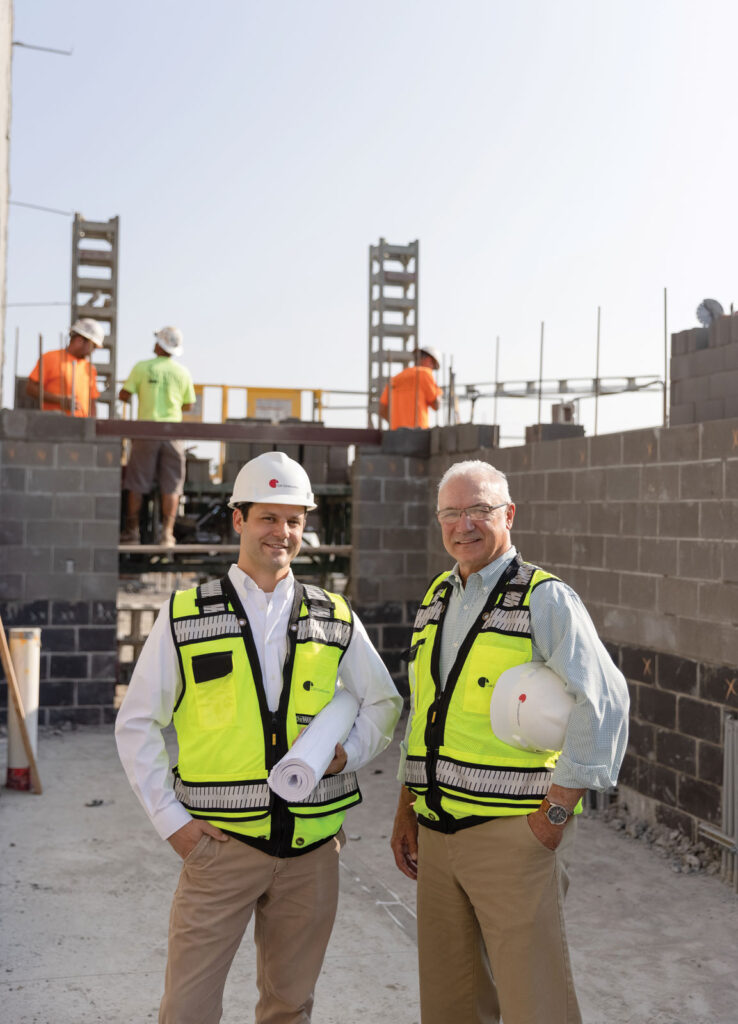
It’s All About Family
Randy’s son, David, is the executive vice president of Coil Construction. He’s preparing to take the reins from his dad, but that didn’t happen overnight either. David started working for the company in high school before he was old enough to drive. His parents would drop him off at job sites where he would sweep up, help with demolition, and run errands.
In 2007, David joined Coil full-time as a project engineer after graduating from Southern Methodist University. His first major project was as assistant project manager for the building of the Anheuser-Busch Clydesdale breeding facility, Warm Springs Ranch, in Boonville. David earned an MBA from Mizzou in 2014 to further prepare him for a transition into an executive role leading and managing the company’s operations. He became a company owner in 2015.
“There’s definitely a tremendous amount of pride I take in taking over the family business,” David says. “There’s a lot to live up to.”
David seems far prouder than daunted by the task of leading Coil Construction forward. Randy Coil envisions the day when David’s 9-year-old daughter — who has set her sights on being president of the company — starts helping out.
“I have three daughters who are very aware of what I do and can point out buildings that I’ve built around town,” David says. “I think that’s one of the greatest satisfactions of being a builder and for a lot of our tradespeople, too. Just the abil ity to drive around and point to physical objects and facilities and say, ‘I helped build that.’ It’s a pretty cool feeling to be a part of something tangible that will be around, hopefully for a very long time.”
As far as Randy and David are concerned, everyone who works for them is family. That helps keep Coil feeling like a small business despite its expansive reach.
“We try to keep that family atmosphere as much as we can,” David says. “I think we are growing in size and sophistication, but I think the work-life balance, some of the flexibility that we offer our employees are really family-centric because that’s where they originated.”
“It’s all about people,” Randy says. “We’re selling a service and a resource and a knowledge base that comes from our people. And I enjoy coming in every day and talking to the folks that work here. I am truly interested in their kids, what’s going on with soccer practice, and where they’re going on vacation.”
Randy and David also value their help in how the company should move forward. They ask for and listen to input from their employees on new products, services, technology, and processes.
“It’s more than just their job. They collaborate with each other, and we try to involve them in our growth,” Randy says.
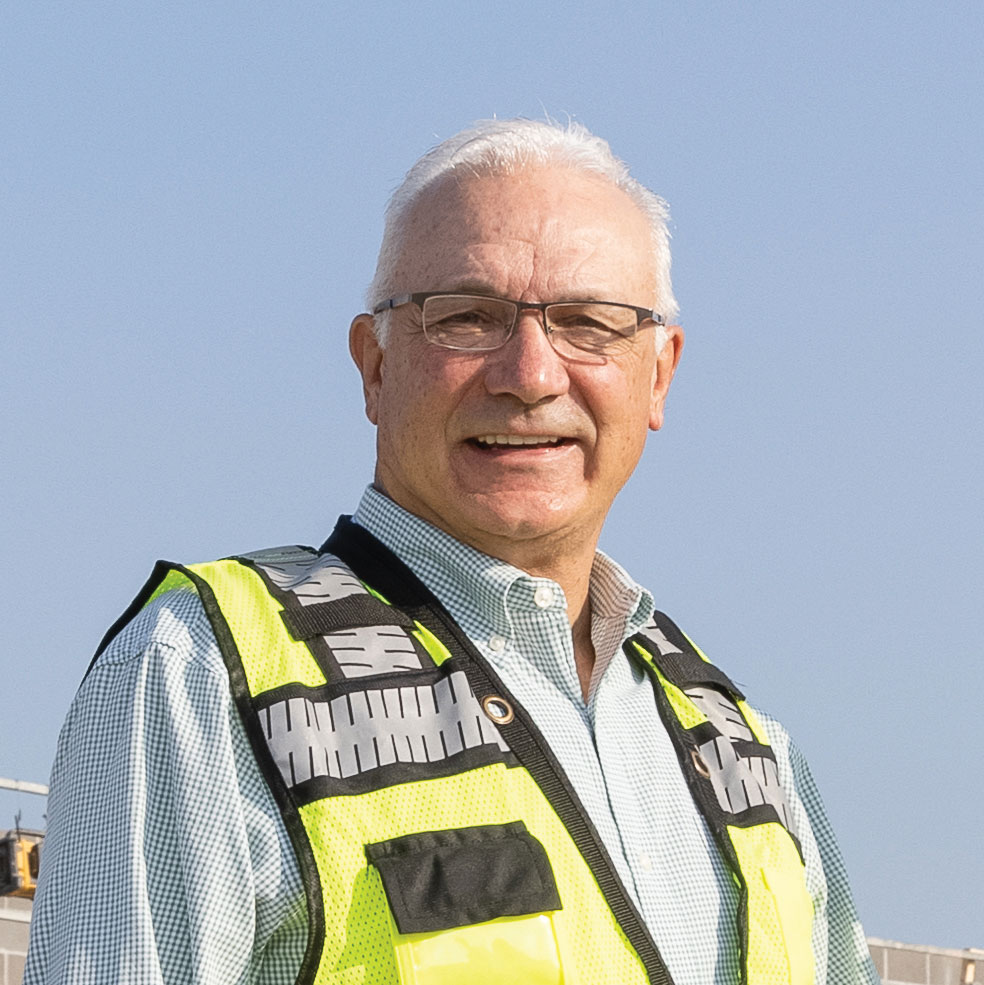
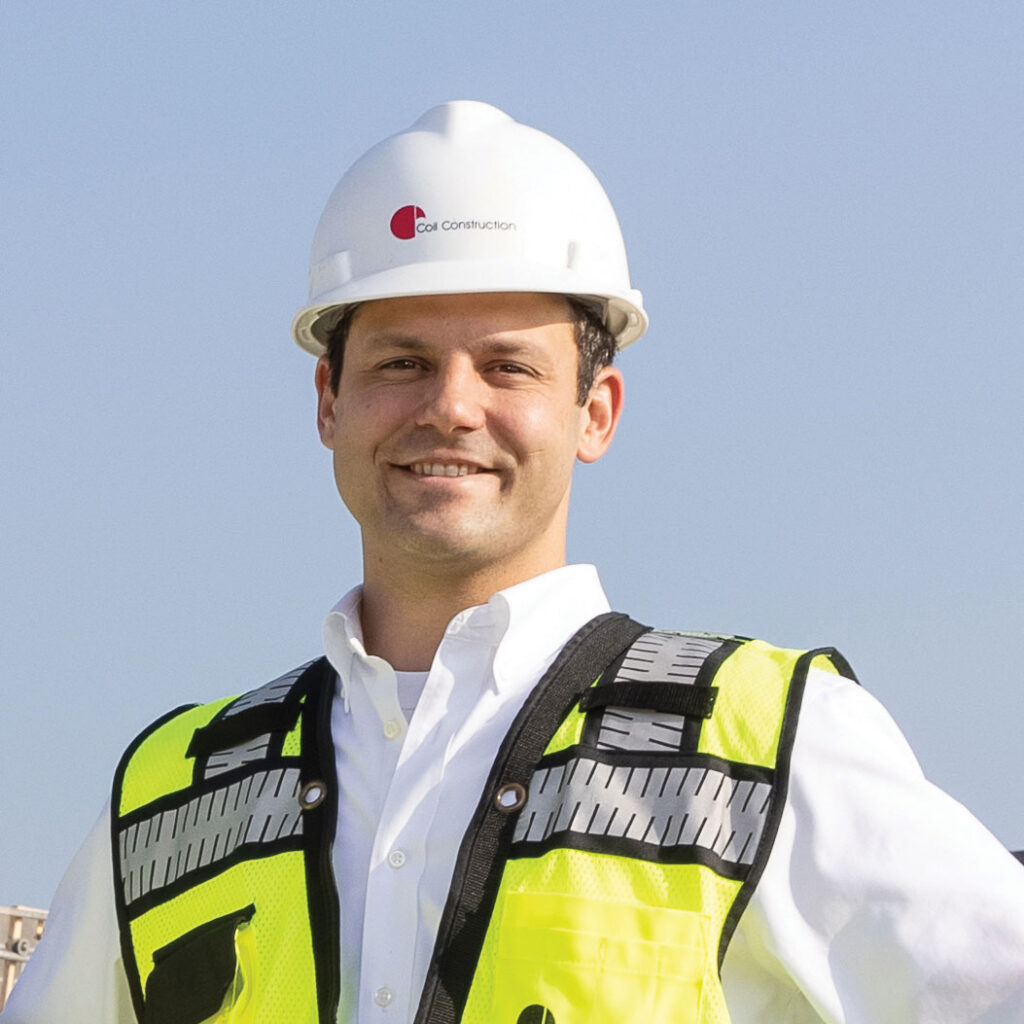
Be Bold
Randy says that when he started Coil Construction, he wanted to be a good, smart, ethical businessman with a good work-life balance.
“It’s real easy to put in 80 hours a week when you first start a business,” he says.
What advice would 2023 Randy give himself in 1975?
“Be bold about where you want to go and stick to it,” he says. “For the most part, I did. But there were probably some opportunities that I missed because I wasn’t bold enough. I was sometimes a little too conservative because I didn’t want to spend more than I made. But there is a time and place to borrow money and take a little risk, and you have to know when that time is right.”
Randy has no regrets about the decisions made to grow Coil Construction, which is a debt-free company these days. That $500 loan, plus interest, was paid in full a long, long time ago.
